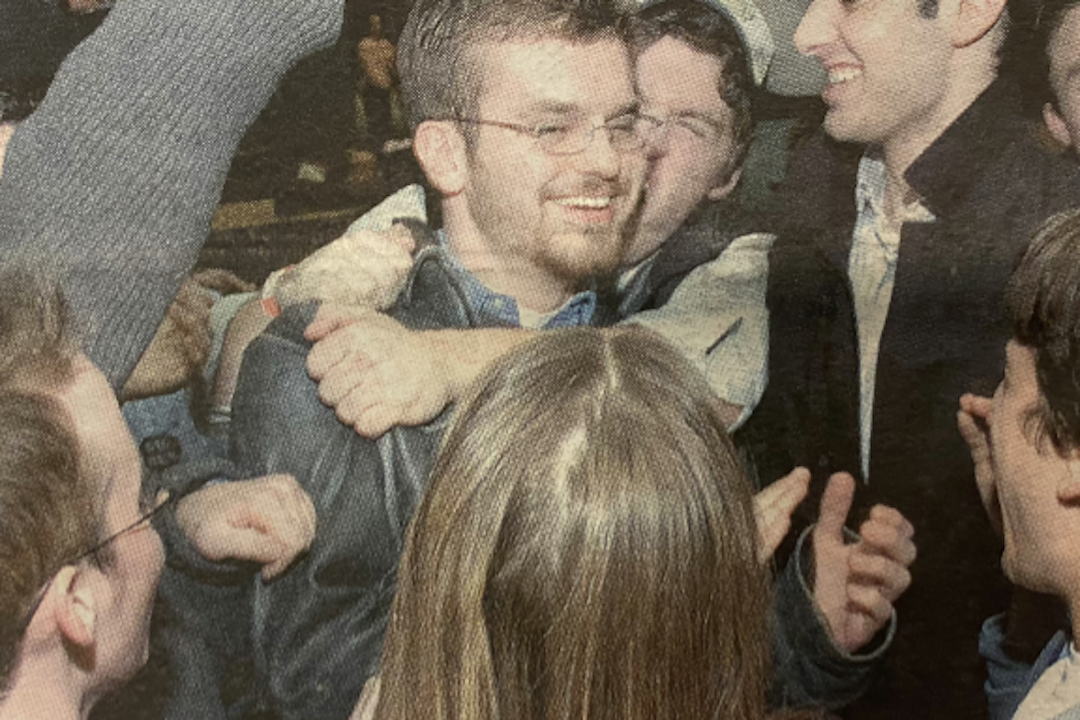Shashwat Gautam’s home state of Bihar, India is one of the poorest in the country. The politics are corrupt, the people are poor and most have not pursued education past high school.
Now, as Gautam finishes his MBA in May and wraps up his term as a graduate Student Association senator, he plans to return to his hometown of Motihari to run for state assembly in 2015. Gautam said he thinks the lessons he’s learned navigating through red tape at GW will give him a leg up.
“I do think GW is almost on equal level with the bureaucracy in the government in India. In a way it really helped me deal with obnoxiously bureaucratic people,” Gautam said.
Gautam has returned home to northern India this year during breaks to survey 1,100 citizens on political and welfare issues, working with business professors Shivraj Kanungo and Demirhan Yenigun to understand voters and help him get ahead in the election.
His home state of Bihar has a 64 percent literacy rate, the lowest in the country, according to the Indian Census, and more than half of its citizens are below the poverty line. Most people are farmers, and the living conditions are “like a remote African country,” Gautam said – a disparity in the largest democracy in the world that he hopes to help change.
“When I witnessed [the poverty] firsthand, I really felt there has to be a way out,” Gautam said.

Gautam traveled to his state’s capital of Patna for primary school, and later studied Information Technology at Faculty of Engineering and Technology in New Delhi.
He plans to mold his platform around social security policies and distribution of agricultural subsidies. He said he hopes to be known as a “politician of farmers” through policies that increase distribution of food grains to people below the poverty level.
He’s also taking inspiration from his roots, noting that his grandfather worked with famous activist Mahatma Gandhi in Gautam’s hometown during the beginnings of the nonviolent resistance movement against British rule. Though he never knew his grandfather, Gautam said he relates to his message.
“If I could have the passion of Che Guevara and the perseverance of Gandhi, that’s definitely something I aspire to be,” Gautam said.
Gautam has started to shape part of that demeanor in the Student Association this year, where Vice President Abby Bergren said he “was a leading senator in terms of sponsored [bills].”As the only international student in the SA, he said he saw the seat as the best platform to challenge leadership at GW.
He also said the experience may entice voters in India.
“The Student Association isn’t that big of a deal here at GW, but 90 percent of the people from where I’m from haven’t visited the United States and think the Western world is very dominating, and think that people from the East don’t get that opportunity for a leadership role,” Gautam said.
During his time as a senator, Gautam said he worked closely with Bergren, who wrote him a letter of recommendation to use in his campaign.
“From day one, he has had his values in the right place, and I know it sounds a little clichéd, but I remember thinking, this is what being a senator is all about,” Bergren said.
SA Director of International Students Shirley Hsieh, who worked closely with Gautam on a health care proposal and also a group that encourages international students to run for senate, said Gautam took on a strong international identity during his time as a senator.
Hsieh said Gautam’s role in the Student Association of International Leadership was invaluable.
“He was just there to meet with them on these very basic things and was invested in mentoring these students so they could become capable and confident leaders,” Hsieh said.
With only a month left until he graduates, Gautam said he plans to temporarily stay in the District to continue working as a consulting analyst to Government of Maryland’s water utility company, whom he has worked for since last August. Gautam has also spent time as a Rural Innovation and Farming adviser for Ashoka, a nonprofit that promotes global entrepreneurship.
As he continues on, Gautam said he hopes he has left a legacy that challenged the administration and increased student representation.
“I thought that as long as I could get the senate’s attention and do something, I could bring that back to India, that notion that I came here and was able to do something,” Gautam said.






